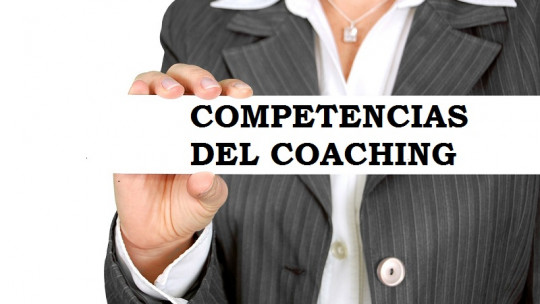Various associations have tried to define the coach’s competencies that are necessary for the proper performance of their work. The term competence is very widespread in the work environment since it is a predictor of good performance in the job in which one works.
Although the concept of competition is used in the occupational field is also used in other spheres such as Personal Development and the education
The coach’s competencies: what are they?
This article presents the 11 most widespread coach competencies, and for this the list of the International Coach Federationn (ICF). These competencies have been established for different purposes: to provide a framework for good professional performance or to compare and improve a coaching training program.
How to be a good coach
After clarifying what the coach’s competencies are, below are the abilities, skills and attitudes necessary for good professional work:
1. Respect ethical and deontological standards
This competition refers to the ability to understand ethics and professional standards of coaching, as well as adhering to the profession’s code of ethics. It is not only necessary to understand these norms and values, but it is necessary to apply them for good professional practice. Additionally, the code of ethics is specific and is an important aspect of coaching competencies as it clearly communicates the differences between coaching, consulting, psychotherapy and other supporting professions.
2. Establish the coaching agreement
It is the ability to understand what is required in each specific coach-coachee interaction and to establish an agreement with the client about the coaching process and relationship Therefore, the coach who masters this competence understands and effectively presents to the client the specific guidelines and parameters of the coaching relationship (logistics, rates, calendar, participation of third parties, etc.). He also reaches an agreement on what is and is not appropriate in the relationship, on the service the coach will offer and the method he will use.
3. Establish trust and intimacy with the client
It is the ability to create an enabling environment that contribute to the development of mutual respect and trust This competence is manifested because the coach shows genuine interest in the client, continually demonstrates professional and personal integrity, establishes clear agreements, demonstrates respect for the client’s opinions, supports the client in their decisions and respects the coachee’s privacy at all times. (coach client).
4. Be present at coaching
It is the ability to be fully aware and create a spontaneous relationship with the client using a open, flexible and secure The coach uses his intuition and trusts his inner knowing, is able to recognize that he does not know everything and demonstrates confidence when dealing with strong emotions. The coach has the self-control necessary to guide the client without being overwhelmed.
5. Active listening
The coach knows how to focus completely on what the client says and what he does not say, and understands the meaning of his words in their context. This is one of the coach’s competencies that have to do with the communicative skills since through active listening greater attention is paid to what the client says, but it also helps the coachee to express themselves.
6. Question forcefully
This is one of the coach’s most representative competencies of his work, since he must perform powerful questions , that is, questions that reveal the information necessary to obtain the greatest benefit for the coachee. These types of questions make the coachee reflect, that is, they promote self-knowledge and self-reflection and help the client commit to action. Socratic questions are used in coaching.
7. Direct communication
It is the ability to communicate effectively during coaching sessions and the ability to use language that is positive and efficient in the relationship with the coachee. The coach who masters this type of competition performs a effective feedback is clear and direct, clearly indicates the objectives of the coach-coachee relationship and uses appropriate and respectful language, encouraging excellent rapport.
8. Raise awareness
It is the ability to accurately integrate and evaluate different sources of information and to make interpretations that help the client to be aware and thus meet agreed upon goals. The coach creates awareness in different ways, for example, proposing reflections seeking greater understanding from the coachee or helping the coachee to identify limiting beliefs that do not allow it to grow.
9. Design the actions
Ability to create continuous learning opportunities with the client during coaching and in work and life in general. This competition refers to the work of the coach what should facilitate the coachee’s knowledge of new actions that lead in the most effective way to the agreed results of the coaching. In this way, the coach helps the coachee to define new actions that allow them to demonstrate, deepen and acquire new learning. He also engages the client to explore new ideas and alternative situations, promoting opportunities for experiential learning.
10. Plan and establish goals and objectives
It is the ability to develop and maintain an effective coaching plan with the coachee. The coach consolidates the information collected and establishes a coaching plan to achieve the objectives. The objectives are achievable, measurable, specific and achieved in a given time The good coach has the ability to make adjustments to what is planned and helps the client access the resources necessary for the acquisition and fulfillment of goals.
11. Manage progress and responsibility
Within the coach’s competencies, it is the ability to maintain attention on what is important to the client and to transfer responsibility for the action to the client. For it, The coach proposes and asks the client for actions that direct him or her to the desired goal and planned, promotes the coachee’s self-discipline, gives efficient feedback and confronts the client positively when they do not comply with the agreed actions.









